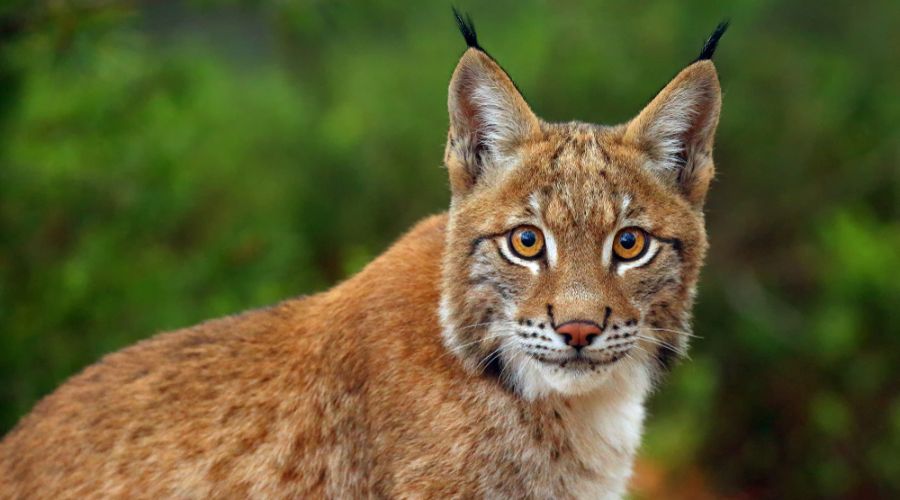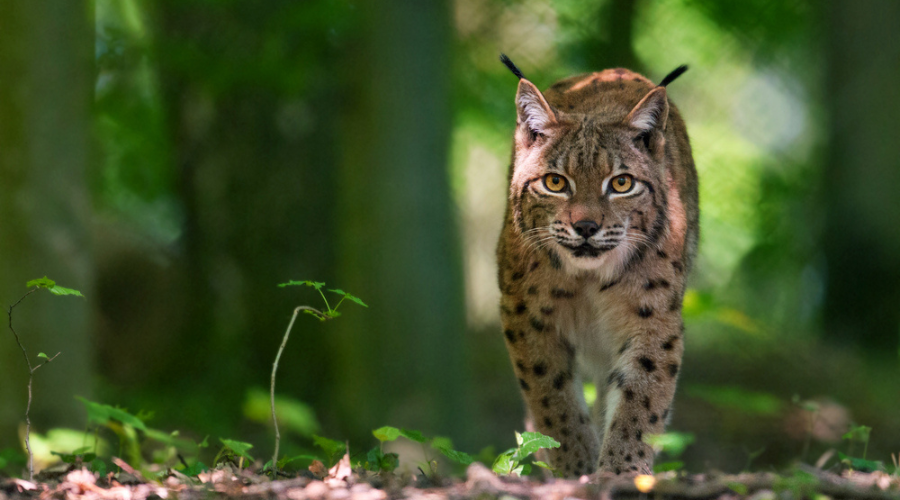Lynx debate reignites as exhibition is set to go on tour in the UK
11th April 2024
The question of lynx reintroduction to the UK has resurfaced, with some farmers arguing in favour of the scheme, despite ongoing concerns about the impacts to livestock.

An exhibition launched by the Missing Lynx Project is set to tour the North East of England this spring and summer, to gather local people’s opinions on the reintroduction of lynx.
The issue has long been a cause for concern among farmers – particularly those in the sheep sector who fear wild lynx could devastate their flocks. However, farmers from the Nature Friendly Farming Network (NFFN) believe careful species reintroduction could bring some benefits.

NFU environment forum chair Richard Bramley said that the reintroduction of certain species could have significant impacts on the many benefits that the countryside and farming deliver.
It could potentially put livestock at risk, spread disease, and damage land and crops. However, he acknowledged that the reintroduction of some species could be beneficial.
Mr Bramley added: “Although we understand that reintroductions aren’t a priority for government, we would still like to see a government framework which outlines the process it will follow when managing species reintroductions in England.
“We’ll continue to work alongside government to ensure responsible decisions are taken which incorporate the farming communities’ views.”
Could there be benefits for farmers?
Martin Lines, CEO of the Nature Friendly Farming Network (NFFN), said careful species reintroduction can play an important role in landscape regeneration.

“So-called keystone species can exert great influence on the character of the land, helping to address some of the biggest challenges we face today, including climate-induced flooding and drought, biodiversity recovery and water quality improvement,” he said.
“In the case of lynx, they could play a valuable role in controlling populations of deer which are having significant negative impacts in some landscapes. Like any proposed reintroduction programme, a robust process of consultation and delivery of a comprehensive impact assessment would be essential.
“The conversation taking place in Northumberland highlights the need for a long-term species reintroduction strategy, which helps to capitalise on benefits, while effectively managing risks and negative impacts. Unfortunately, the government seems to see no need for one, despite a growing number of projects taking place throughout the country.”
READ MORE: Lynx debate threatens livestock and livelihoods – NSA
READ MORE: Scottish farmers hit back at latest proposals to reintroduce lynx
Concerns for sheep farming
The National Sheep Association has previously warned that the debate threatens livestock and livelihoods.
Speaking last year after a potential reintroduction of lynx was debated in Scottish Parliament, Grace Reid, National Sheep Association’s Scottish Region coordinator, said:
“NSA Scottish Region advocates for a diverse tapestry of habitats and biodiversity across farmland. Protecting these habitats that exist, the species that are at risk right now, and the people managing them should be the priorities for the government.
“However, NSA members across the UK and notably Scotland have been at the sharp end of species reintroductions, from poor consultation processes, illegal releases, no management strategies, and no mitigation, exit or recognition of the impacts to farming businesses and livelihoods. We are increasingly concerned around the contradictions which could arise in government policy.”
She added: “The argument that Lynx will only feed on deer is not acceptable. There is no doubt sheep will be an easy target for predation and it is a major concern for those who farm in Scotland. Evidence has shown that some European sheep flocks continue to suffer disproportionately great losses due to lynx predation.”
Northumberland “best for lynx”
Organisers of the upcoming exhibition explained that it is the project’s first step in listening to local people’s opinions on the reintroduction of lynx.
They added: “Our research has shown that if lynx were to be released into Northumberland, they could grow into a healthy and sustainable population.
“The habitat patch where lynx would be predicted to successfully live covers north-west Northumberland, the edge of Cumbria, and into the bordering areas of southern Scotland as the woodland habitat here has recovered.
“The partnership would support a reintroduction but only if the conditions above are met – and this new project is testing just that by opening up the conversation with local people.”

Get tickets
The Missing Lynx exhibition opens on Thursday 11th April, when it will tour local venues, providing opportunities for people to have their say by taking part in questionnaires, interviews and discussion groups.
Free tickets to the exhibition are available here.
Have your opinion heard – email editorial@farmersguide.co.uk.
Read more rural stories.
